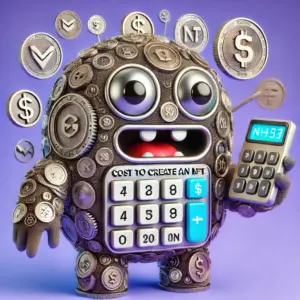The emergence of NFTs, or non-fungible tokens, has revolutionized the digital landscape, introducing a new paradigm for ownership and authenticity in the realm of digital assets. However, the ease of copying and sharing digital content has raised questions about the true value of NFTs and the potential for replication. While the underlying technology of blockchain ensures the uniqueness of NFTs, understanding the distinction between NFT ownership and digital content replication is crucial.
The Essence of NFT Ownership: A Digital Demarcating Line
At the core of the NFT debate lies the concept of ownership. Unlike fungible tokens like Bitcoin, which are interchangeable and have the same value, each NFT is a unique and indivisible asset. This distinctiveness is conferred by the token’s unique identifying code, which is stored on a blockchain, a decentralized and transparent ledger. The blockchain serves as an immutable record of ownership, ensuring that the NFT’s creator and current owner are clearly identified.
The Challenge of Replicating Digital Content: A Duality of Nature
While the underlying code of an NFT is unique and cannot be replicated, the digital content it represents, such as an image or audio file, can be easily copied and shared. This raises concerns about the true value of NFTs, as anyone can access and distribute the digital content without owning the underlying token.
Understanding Copyright and Ownership: Distancing the Digital from the Tangible
It’s crucial to distinguish between copyright and ownership in the context of NFTs. Copyright refers to the exclusive right to reproduce, distribute, and create derivative works of original creative content. The creator of the digital content retains copyright ownership, regardless of whether the underlying NFT is sold or transferred. Owning an NFT does not grant the owner the copyright to the digital asset, but rather, the right to claim ownership and certain usage rights associated with the NFT.
The Power of Smart Contracts: Ensuring Ownership and Beyond
Smart contracts, self-executing contracts embedded on the blockchain, play a significant role in governing NFT ownership and usage rights. These contracts can specify how the digital content can be used and shared, potentially limiting the ability of third parties to misuse or exploit the NFT without the owner’s permission. Smart contracts can also incorporate royalty agreements, allowing creators to earn a percentage of any future sales or transactions involving their NFTs.
The Impact of NFT Replication: A Looming Concern
The ease of replicating digital content raises questions about the potential impact on NFT value and the integrity of the NFT market. Some argue that widespread copying could undermine the value of NFTs, as the scarcity and uniqueness that underpin their appeal could be diluted. The ability to freely copy and share digital content could also lead to concerns about copyright infringement and the potential misuse of NFTs.
The Role of Digital Distribution Platforms: Guardians of Authenticity
Digital distribution platforms that host and display NFT-linked content can play a crucial role in mitigating the issue of replication. By implementing measures to authenticate NFT ownership and restrict unauthorized access to the digital content, these platforms can help maintain the integrity of the NFT experience. These platforms can also play an active role in educating users about NFT ownership and the importance of respecting copyright laws.
The Evolving Landscape of NFT Ownership: Embracing Innovation
As the NFT space continues to evolve, new technologies and approaches are emerging to address the issue of replicating digital content. For instance, the development of verifiable digital signatures and blockchain-based authenticity protocols could further strengthen the ownership and usage rights associated with NFTs. These technologies can help establish clear ownership and usage guidelines for digital content, ensuring that NFTs retain their value and integrity.
Conclusion: Navigating the Balancing Act
The debate on copying NFTs highlights the complex interplay between digital ownership, copyright, and the inherent nature of digital content. While NFTs provide a mechanism for verifiable ownership, the ease of replicating digital data poses challenges to ensuring the integrity and value of these assets. Ongoing technological advancements, coupled with responsible practices within the NFT community, can help navigate this balancing act and establish a sustainable future for NFTs.






